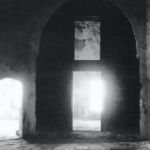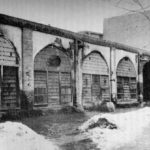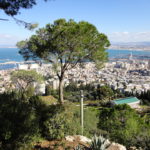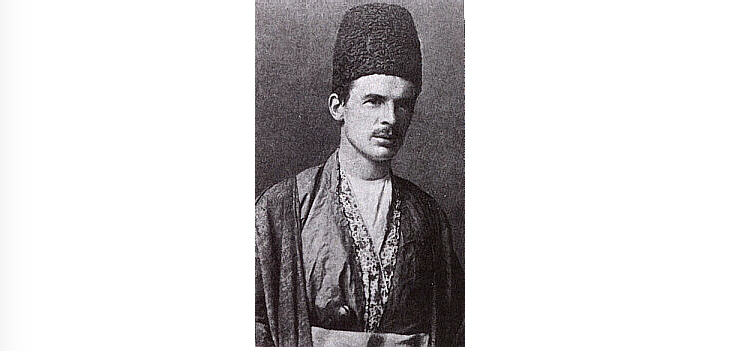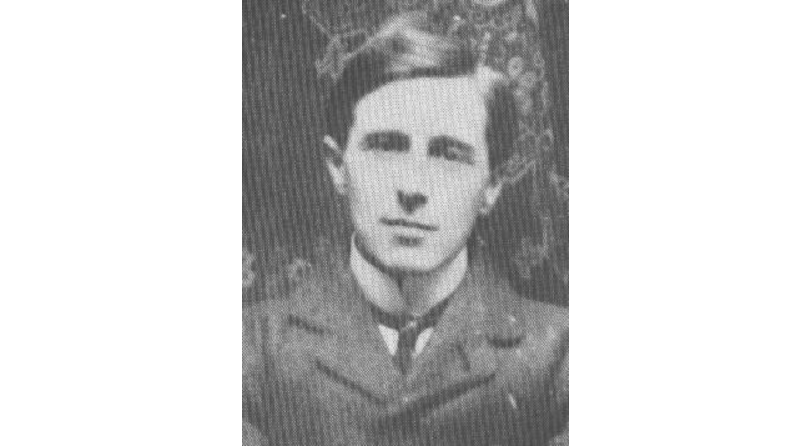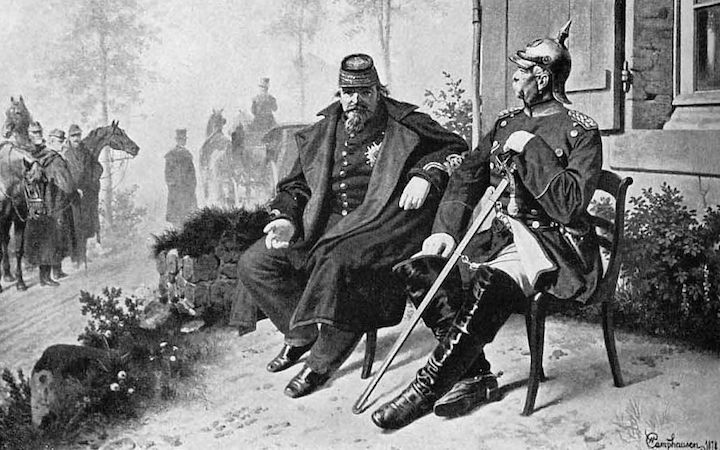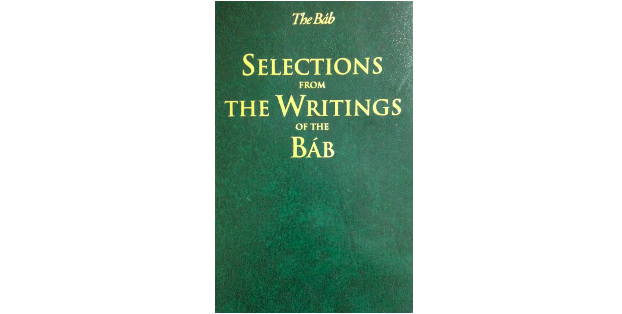
Selections from the Writings of the Bab
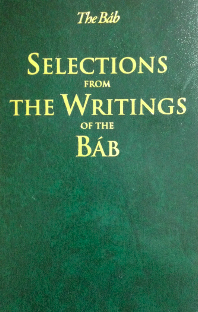 The Bab is the Prophet-Herald of Bahá’u’lláh. Today marks the 198th anniversary of his birth for he was born in 1819, two years after the birth of Bahá’u’lláh. The Bab was born in the city of Shiraz while Bahá’u’lláh was born in the city of Tehran, hundreds of miles to the north. Although the Bab and Bahá’u’llah never physically met, one of the first acts of the Bab was to send Mulla Husayn, his first and most trusted discipline to deliver a message to Bahá’u’llah. When Bahá’lláh received it he affirmed the truth of the Bab and returned to Mulla Husayn a gift. The gift was symbolic and inconsequential but brought great joy to Mulla Husayn. Nabil recorded Mulla Husayn’s reactions. The words are those of a religious student who Mulla Husayn had befriended and sent to deliver the Bab’s message to Bahá’u’lláh.
The Bab is the Prophet-Herald of Bahá’u’lláh. Today marks the 198th anniversary of his birth for he was born in 1819, two years after the birth of Bahá’u’lláh. The Bab was born in the city of Shiraz while Bahá’u’lláh was born in the city of Tehran, hundreds of miles to the north. Although the Bab and Bahá’u’llah never physically met, one of the first acts of the Bab was to send Mulla Husayn, his first and most trusted discipline to deliver a message to Bahá’u’llah. When Bahá’lláh received it he affirmed the truth of the Bab and returned to Mulla Husayn a gift. The gift was symbolic and inconsequential but brought great joy to Mulla Husayn. Nabil recorded Mulla Husayn’s reactions. The words are those of a religious student who Mulla Husayn had befriended and sent to deliver the Bab’s message to Bahá’u’lláh.
Dismissing me from His presence, [Bahá’u’lláh] charged me to take to Mullá Husayn, as a gift from Him, a loaf of Russian sugar and a package of tea, and to convey to him the expression of His appreciation and love. “‘I arose and, filled with joy, hastened back to Mullá Husayn, and delivered to him the gift and message of Bahá’u’lláh. With what joy and exultation he received them from me! Words fail me to describe the intensity of his emotion. He started to his feet, received with bowed head the gift from my hand, and fervently kissed it. He then took me in his arms, kissed my eyes, and said: “My dearly beloved friend! I pray that even as you have rejoiced my heart, God may grant you eternal felicity and fill your heart with imperishable gladness.” I was amazed at the behaviour of Mullá Husayn. What could be, I thought to myself, the nature of the bond that unites these two souls? What could have kindled so fervid a fellowship in their hearts? Why should Mullá Husayn, in whose sight the pomp and circumstance of royalty were the merest trifle, have evinced such gladness at the sight of so inconsiderable a gift from the hands of Bahá’u’lláh? I was puzzled by this thought and could not unravel its mystery. [The Dawnbreakers, Nabil’s Narrative, Chapter IV]
The mystery was not revealed until years later – although the entirety of the Bab’s teachings revolve around it. The prophetic figure who would come after him – “Him Whom God Shall Make Manifest” – Bahá’u’lláh.
Selections from the Writings of the Bab is a collection of passages from the Bab’s writings and they convey the intensity of his love for God and for Him Whom God Shall Make Manifest. One of the most beautiful prayers of the Bab is disarmingly simple yet of haunting beauty.
O God, my God, my Beloved, my heart’s Desire.[1]
Selections from the Writings of the Bab begins with two letters addressed by the Bab to Him Whom God Shall Make Manifest.
The letters refer to Him Whom God Shall Make Manifest [i.e. Bahá’u’llah] and the Bab himself as God. Bahá’u’lláh also, when writing to kings and rulers, uses this way of speaking. In the Epistle to the Son of the Wolf, Bahá’u’lláh explains such references. He explains that they are allusions to the prophecies of the Qur’an and other sacred texts that one-day, humanity would be in the presence of God.
In all the Divine Books the promise of the Divine Presence hath been explicitly recorded. By this Presence is meant the Presence of Him Who is the Dayspring of the signs, and the Dawning-Place of the clear tokens, and the Manifestation of the Excellent Names, and the Source of the attributes, of the true God, exalted be His glory. God in His Essence and in His own Self hath ever been unseen, inaccessible, and unknowable. By Presence, therefore, is meant the Presence of the One Who is His Vicegerent amongst men.[2]
The Bab’s own words are as follows:
This is an epistle from the letter Thá [i.e. the Bab] unto Him Who will be made manifest through the power of Truth—He Who is the All-Glorious, the Best-Beloved—to affirm that all created things as well as myself bear witness for all time that there is none other God but Thee, the Omnipotent, the Self-Subsisting; that Thou art God, there is no God besides Thee and that all men shall be raised up to life through Thee.[3]
It is interesting to note also that in this passage to hear an echo of biblical passages – perhaps we find here a reference to the Spirit of Truth.
The Bab’s second letter to Him Whom God Shall Make Manifest includes the following:
This is a letter from God, the Help in Peril, the Self-Subsisting, unto God, the Almighty, the Best-Beloved, to affirm that the Bayán [i.e. the Bab’s own sacred text] and such as bear allegiance to it are but a present from me unto Thee and to express my undoubting faith that there is no God but Thee, that the kingdoms of Creation and Revelation are Thine, that no one can attain anything save by Thy power and that He Whom Thou hast raised up is but Thy servant and Thy Testimony. I, indeed, beg to address Him Whom God shall make manifest, by Thy leave in these words: “Shouldst Thou dismiss the entire company of the followers of the Bayán in the Day of the Latter Resurrection by a mere sign of Thy finger even while still a suckling babe, Thou wouldst indeed be praised in Thy indication. And though no doubt is there about it, do Thou grant a respite of nineteen years as a token of Thy favor so that those who have embraced this Cause may be graciously rewarded by Thee.[4]
Nineteen years is the period that passed between the Declaration of the Bab in 1844 and the Declaration of Bahá’u’lláh in 1863. The number 19 is also closely associated with the Bab. Thus the Shrine of the Bab is set in 19 terraces and the Bab and his 18 disciples also form a set of 19.
The following is one of the beautiful prayers written by the Bab.
I beg Thee to forgive me, O my Lord, for every mention but the mention of Thee, and for every praise but the praise of Thee, and for every delight but delight in Thy nearness, and for every pleasure but the pleasure of communion with Thee, and for every joy but the joy of Thy love and of Thy good-pleasure, and for all things pertaining unto me which bear no relationship unto Thee, O Thou Who art the Lord of lords, He Who provideth the means and unlocketh the doors.[5]
(This article is the 198th in a series of what I hope will be 200 articles in 200 days for the 200th anniversary of the birth of Bahá’u’lláh. The anniversary is being celebrated around the world on 21 and 22 October 2017, The articles are simply my personal reflections on Bahá’u’lláh’s life and work. Any errors or inadequacies in these articles are solely my responsibility.)
